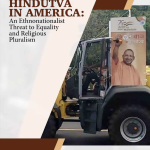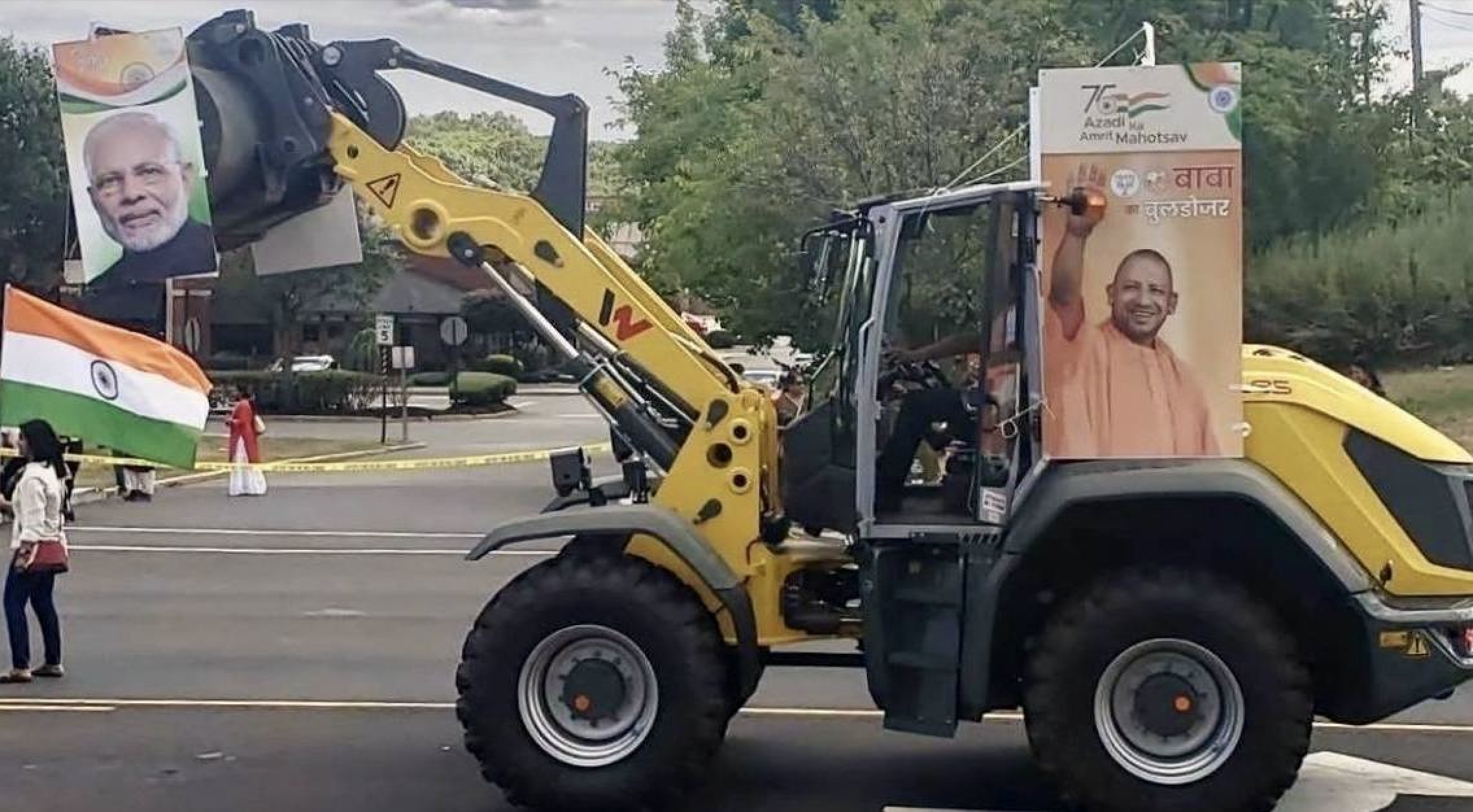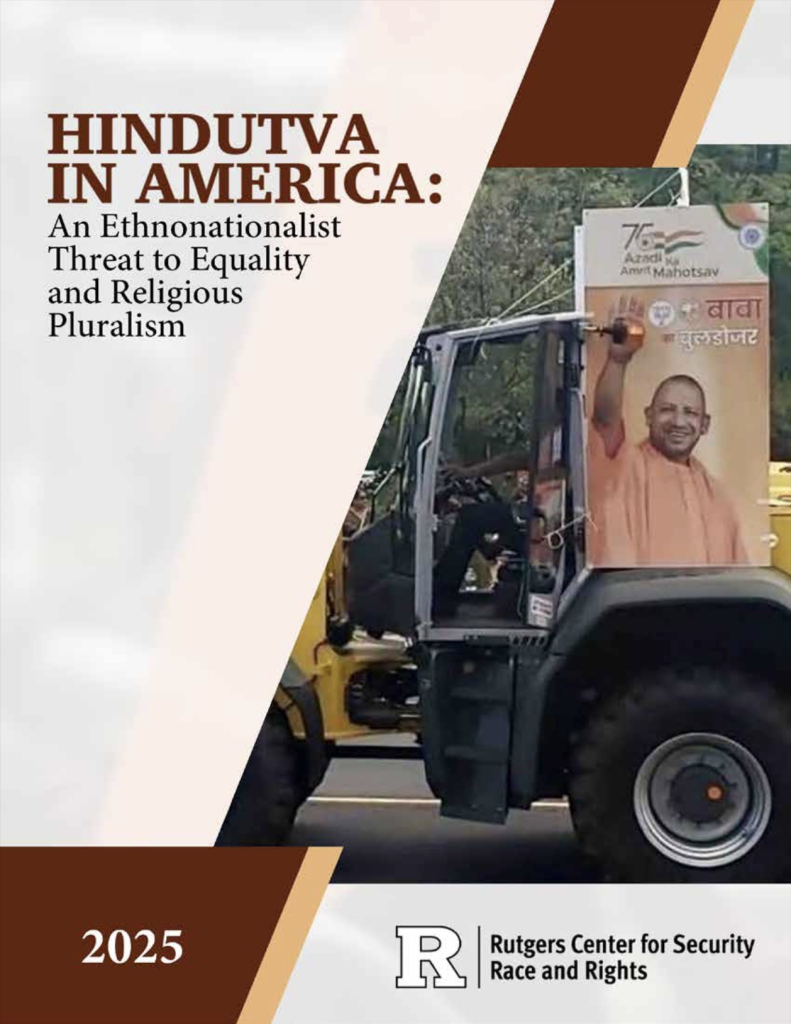Hindu nationalism, also known as Hindutva, is a transnational far-right political ideology grounded in Hindu supremacy. In India, Hindu nationalists advocate a strict form of ethnonationalism that reimagines the secular Indian republic as an exclusively Hindu nation and seeks to relegate religious minorities–especially Muslims–to an inferior status. Hindu nationalism is distinct from Hinduism, notwithstanding Hindutva proponents’ erroneous claims of representing all Hindus.
In the United States, Hindutva proponents seek to silence the voices of Indian Americans and others who disagree with their ideology, promote harmful policies favorable to India’s Hindu nationalist political parties, and control knowledge about South Asia’s diverse, multireligious history. In so doing, Hindutva advocates undermine American pluralism and spread hate against Muslims, Sikhs and other minority groups within American society.
To be sure, Hindutva is not Hinduism, both in terms of genre and its impact on American politics and society. Whereas the religion of Hinduism contributes to American pluralism and religious diversity, the political ideology of Hindu nationalism works against those core American values by perpetuating supremacist ideas and discriminatory conduct, especially against non-Hindu South Asians.
The report Hindutva in America: A Threat to Equality and Religious Pluralism examines how Hindu nationalists have capitalized on the anti-Muslim public discourse arising from the Global War on Terror to obtain greater acceptance of their ethnonationalist agenda. By couching their rhetoric within the mainstream narrative that Muslims worldwide are presumptively terrorists and violent, Hindutva organizations join the chorus of other anti-Muslim right-wing groups.
Specifically, the various strands of Hindutva in the United States pursue two objectives: the othering of Muslims as suspicious outsiders and stymying academic freedom.
To prevent Hindutva-inspired groups from threatening the equality, safety, and lives of their minoritized targets in the United States, the report offers five recommendations:
- Law enforcement, politicians, and civil society groups should cease partnerships with U.S.-based Hindu nationalist groups.
- Federal authorities should ensure that U.S. groups that act as proxies of India’s RSS (Rashtriya Swayamsevak Sangh) and its affiliate organizations register under the Foreign Agents Registration Act.
- U.S.-based Hindu nationalist groups, particularly those registered as charities, must be fully transparent about their financial links abroad, including material support originating overseas, financial resources directed overseas, and ties to foreign governments.
- The U.S. government should impose sanctions on or refuse entry into the United States to persons who facilitate or provide material support for anti-minority violence in India.
- University administrations should educate themselves about the threats caused by Hindutva-inspired discrimination in the United States and protect professors, staff, and students within their universities from caste-based and religion-based discrimination.
To read Hindutva in America: A Threat to Equality and Religious Pluralism, click here.
To read the Executive Summary, click here.
Watch REPORT LAUNCH: Hindutva in America – A Threat to Equality and Religious Pluralism here.
Watch Hindutva in America: A Threat to Equality & Religious Pluralism here.
Watch Hostile Homelands: The New Alliance Between India and Israel with Azad Essa here.
Watch Coming Out as Dalit: A Memoir of Surviving India’s Caste System with Yashica Dutt here.
Media Coverage
Hindu Supremacy in America: Rutgers Report Warns of Growing Threat to Pluralism and Civil Rights. NRI Affairs. (2025). (interviewing Sahar Aziz).
A damning new report from Rutgers Law School has exposed how Hindu supremacist organisations are threatening American pluralism, spreading anti-Muslim hate and perpetuating discriminatory conduct whilst exploiting the country’s unfamiliarity with India’s far-right political movements. The 68-page study, titled “Hindutva in America: A Threat to Equality and Religious Pluralism“, examines the origins, networks and impacts of Hindu nationalist organisations operating across the United States, revealing a transnational movement that claims to represent all Hindus whilst advancing an exclusionary political agenda rooted in Hindu supremacy.
Read more here.

America has Hindutva problem: Damning Rutgers report warns of dangers of India-origin radical groups. TRT World. (2025). (interviewing Sahar Aziz).
Far-right Hindutva groups in the US must be reined in as they are threatening lives and spreading hate, while perpetuating supremacist ideas and discriminatory conduct against Americans, a new report warns. The report, titled “Hindutva in America: A Threat to Equality and Religious Pluralism”, is a damning 68-page document prepared by Rutgers Law School in New Jersey. It examines how far-right Hindu groups have capitalised on the anti-Muslim public discourse arising from the so-called “war on terror” to obtain greater acceptance of their ethnonationalist agenda.
Read more here.

How Rutgers University became the battleground for Hindu inclusion. Religion News Service. (2025). (interviewing Audrey Truschke).
In late October, Rutgers University, New Jersey’s flagship state school, held an academic panel on the rise of Hindu nationalism in the United States. The conversation between a South Asian history professor and a graduate student traced how Hindutva — a far-right political ideology distinct from Hinduism — influences politics in the sprawling Indian diaspora.
Read more here.

RSS exporting Hindutva to US. Pakistan Observer. Hassan Ahmad. (2025).
HINDUSTAN ideology is seen as damaging Indian secularism through sustained push to the vision of India as an explicitly Hindu nation state (Hindu Rashtra). BJP under the leadership of PM Narrinder Modi is deeply involved in institutionalizing this concept which fundamentally contradicts the constitutionally mandated secular and pluralistic foundations. State supported systematic thrust to this ideology has led to the marginalization of minorities, particularly Muslims and Christians, vis a vis increased social and political polarization.
Read more here.









